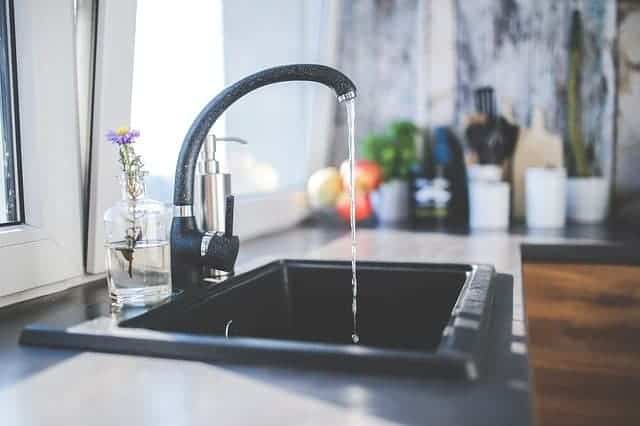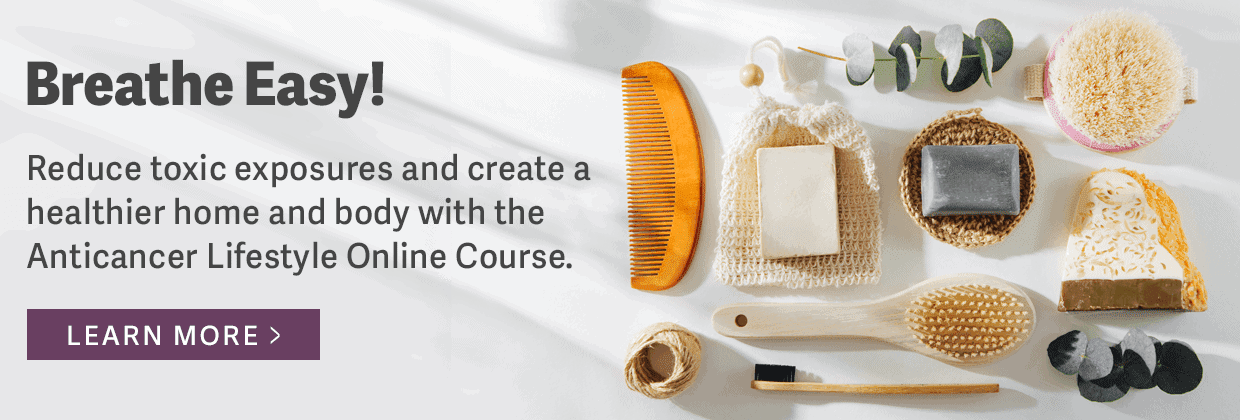We know it can seem like everything in our environment causes cancer, but the truth is that with some key changes in your purchasing habits, you can greatly lower your exposure to carcinogens, endocrine disruptors, and other chemicals of concern. Whether it’s your clothing, your body care and home cleaning products, or the pots and pans you cook with, increased awareness will help you select the highest quality products for yourself and your family. For more information about all the items listed below, please see the Environment module of the Anticancer Lifestyle Program.
- Skin Care Products: Use personal care products free of carcinogens, chemicals of concern, endocrine (hormone) disrupting chemicals, and fragrance. The Environmental Working Group (EWG) has a helpful database that ranks thousands of skin care products according to rigorous health standards. Be sure to avoid touching cash register receipts, as these are coated with BPA, a potent hormone-disrupting chemical.
- Clothing: Use natural fabrics for clothing and household items; avoid stain repellents and dry cleaning that uses PERC. Many dry cleaners now offer a “green cleaning” option.
- Cleaning Products: Use cleaners free of fragrance, carcinogens, chemicals of concern, endocrine disrupting chemicals, and volatile organic compounds. To check safety ratings for cleaning products, you can use EWG’s Guide to Healthy Cleaning.
- Cooking: Do not cook with non-stick cookware, and avoid use of teflon-type utensils. Avoid using plastic in the microwave. Use glass, stainless steel, cast iron, or ceramic for cooking.
- Kitchen: Do not use plastic for food storage; use glass or ceramic instead. Avoid canned foods as virtually all cans are lined with BPA (a hormone disruptor) or related chemicals.
- Air: Keep your air clean–free of dust, pesticides, and fragrances from all sources, including scented candles and commercial air fresheners; wet mop and use HEPA filters. Remove your shoes when entering your home.
- Cell phone: Avoid cell phone use next to your ear, and try to store your phone away from your body (ie, in a purse or backpack, not in a pocket). Use texting, speaker phone, or wired ear buds when on a call.
- Upholstery: Reduce exposure to flame retardants in mattresses, pillows, upholstery, foam, heating blankets, electronics, etc., by selecting natural products free of this chemical treatment.
- Volatile chemical exposure: Reduce VOC (volatile organic chemical) exposure of all kinds, by checking your home for radon, and avoiding the use of mothballs, candles, pressed wood, solvents, PVC products, air fresheners, and other items that emit volatile chemicals.
- Water: Test your water for contaminants such as radon, arsenic, lead, and PFAS chemicals; use the appropriate water filter; store water in glass.






